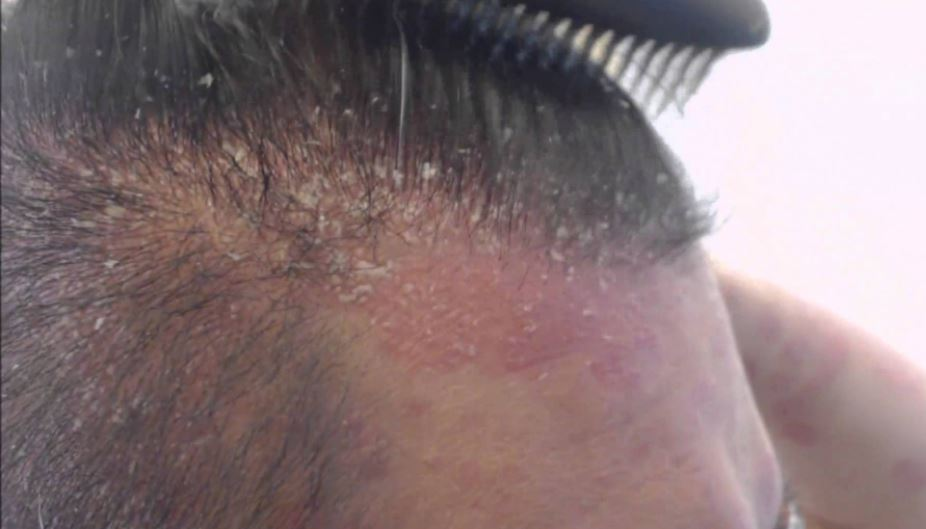
As someone who has experienced dry scalp, I understand the frustration and discomfort it can cause. Dry scalp, also known as xerosis, is a common condition characterized by itching, flaking, and tightness of the scalp. It can be caused by a variety of factors, including environmental changes, excessive heat styling, harsh hair products, and skin conditions such as eczema or psoriasis.
If you are struggling with dry scalp, fear not! In this article, I will delve into the details of this pesky condition, provide insights on its causes, symptoms, and treatment options, and answer some frequently asked questions to help you find relief.
The Causes of Dry Scalp
Dry scalp can be caused by several factors, including:
1. Environmental Changes: Dry, cold weather can sap moisture from your scalp, leading to dryness and flaking.
2. Harsh Hair Products: Using shampoos, conditioners, or styling products that contain harsh chemicals can strip the scalp of its natural oils, causing dryness and irritation.
3. Excessive Heat Styling: Frequent use of hairdryers, straighteners, or curling irons can dehydrate the scalp and contribute to dryness and itching.
4. Skin Conditions: Conditions like eczema, psoriasis, and seborrheic dermatitis can disrupt the scalp’s moisture balance and result in dryness and flaking.
5. Overwashing: Washing your hair too frequently can strip away the scalp’s natural oils, leaving it dry and vulnerable.
To effectively treat dry scalp, it’s important to identify and address the underlying cause. By doing so, you can regain a healthy and hydrated scalp.
Symptoms of Dry Scalp
The most common symptoms of dry scalp include:
1. Itching: Dry scalp often causes persistent itching, which can be both annoying and uncomfortable.
2. Flaking: Flakes of dead skin may appear on your scalp or in your hair, resembling dandruff.
3. Tightness: Your scalp may feel tight and uncomfortable, as if it lacks moisture.
4. Redness: In some cases, dry scalp may cause mild redness and irritation.
5. Sensitivity: Dry scalp can make your scalp more sensitive to certain hair products, leading to additional irritation.
If you are experiencing these symptoms, it’s essential to take steps to alleviate them and restore balance to your scalp.
Treating Dry Scalp
When it comes to treating dry scalp, the following measures may prove helpful:
1. Moisturize: Proper hydration is crucial for a healthy scalp. Use a moisturizing shampoo and conditioner or apply natural oils like coconut oil or olive oil to nourish and hydrate your scalp.
2. Gentle Hair Care: Opt for gentle hair care products that are free from harsh chemicals. Avoid excessive heat styling and limit your use of hairdryers, straighteners, or curling irons to prevent further dryness.
3. Avoid Overwashing: Wash your hair no more than two to three times a week to maintain the scalp’s natural oils and prevent excess dryness.
4. Anti-Dandruff Shampoos: If your dry scalp is accompanied by dandruff, consider using an anti-dandruff shampoo containing active ingredients like zinc pyrithione or ketoconazole.
5. Seek Medical Advice: If your dry scalp persists or worsens despite home remedies, it may be necessary to consult a dermatologist who can provide further evaluation and prescribe specialized treatment.
Frequently Asked Questions about Dry Scalp
1. What is the difference between dry scalp and dandruff?
Dry scalp is characterized by itching, flaking, and tightness, while dandruff is often accompanied by yellow or white oily flakes and scalp inflammation.
2. Can dry scalp cause hair loss?
Dry scalp is unlikely to directly cause hair loss. However, persistent scratching and irritation can damage hair follicles, leading to hair breakage or thinning.
3. Can I get rid of dry scalp overnight?
Unfortunately, dry scalp cannot be cured overnight. Consistent care and appropriate treatment are essential for restoring moisture and achieving a healthier scalp.
4. Is it necessary to see a doctor for dry scalp?
In most cases, dry scalp can be managed with home remedies. However, if your symptoms persist or worsen, it’s recommended to consult a dermatologist for further evaluation and guidance.
5. Can stress cause dry scalp?
Stress can exacerbate existing scalp conditions, such as eczema or psoriasis, which may contribute to dryness and flaking.
6. Can diet affect dry scalp?
A healthy, balanced diet that includes essential nutrients like vitamins A, E, and B can contribute to scalp health. However, specific dietary changes alone may not cure dry scalp.
7. Can dry scalp be prevented?
While dry scalp cannot always be prevented, adopting good hair care practices, avoiding harsh products, and maintaining a healthy lifestyle can help minimize the risk.
8. Can dry scalp occur in the summer?
Yes, dry scalp can occur in any season. Exposure to excessive sun, chlorine, or saltwater can contribute to dryness, even during the summer months.
9. Can I use essential oils to treat dry scalp?
Some essential oils, such as tea tree oil, lavender oil, or rosemary oil, may have soothing and moisturizing effects on the scalp. However, it’s important to dilute them properly and perform a patch test before using them.
10. Does dry scalp affect people of all ages?
Dry scalp can affect people of all ages, from infants to adults. However, it is more commonly observed in adults.
Conclusion
Your dry scalp doesn’t have to ruin your day or undermine your confidence. By understanding the causes, symptoms, and treatment options, you can take the necessary steps to restore balance and nourishment to your scalp. Remember to moisturize, choose gentle hair care products, avoid overwashing, and seek medical advice if needed. Embrace a healthy scalp and enjoy radiant, healthy hair!
Looking for more informative articles? Check out these recommended reads:
1. The Best Shampoos for Different Hair Types
2. How to Create a Natural Hair Care Routine
3. Understanding Scalp Acne: Causes and Treatments
